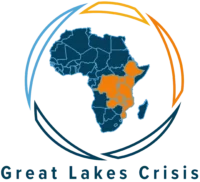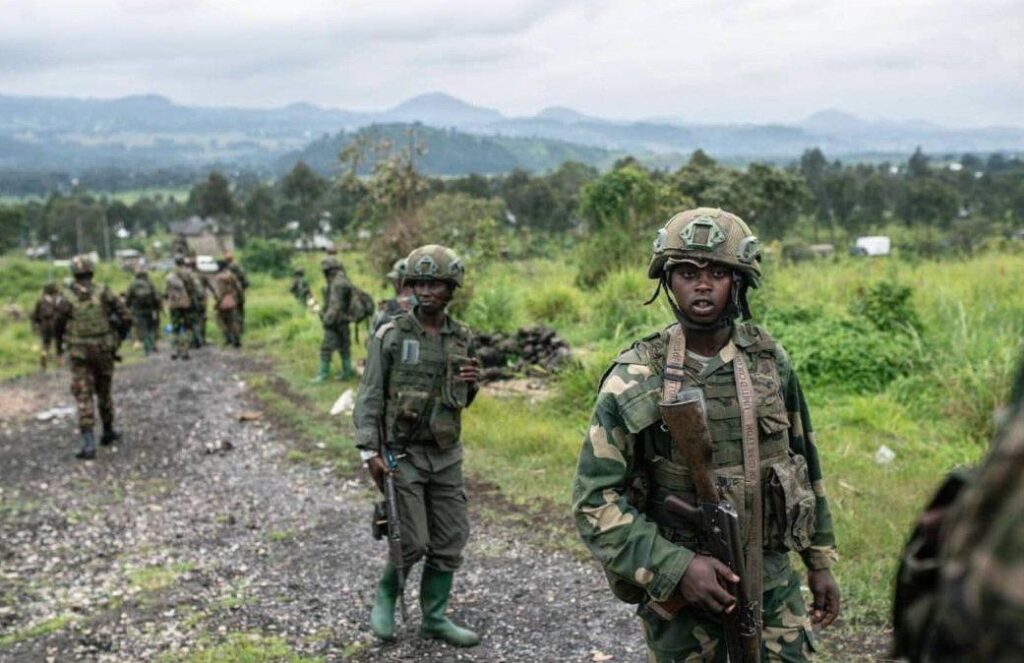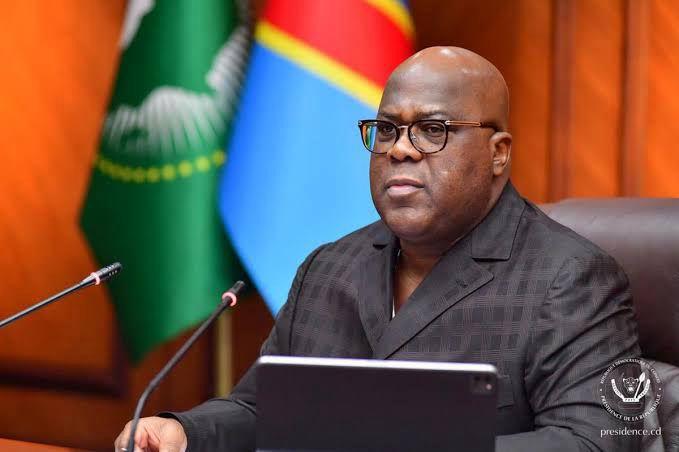“We do not negotiate with terrorists” ; that’s what Kinshasa used to proclaim. Three years later, the same voice signs in Doha with those it once labeled as Rwandan puppets. So, what were the tears, the mass graves, and the speeches for?
On July 19, 2025, the Democratic Republic of Congo (DRC) and the AFC/M23 coalition signed a “Declaration of Principles” in Doha, Qatar, under the mediation of the Qatari government and with American backing. Framed by the Congolese authorities as a diplomatic breakthrough, this declaration is, for many, it feels like a painful contradiction.After three years of mass killings, forced displacements, and relentless demonization of the AFC/M23 rebel coalition group as terrorists and Rwandan proxies, the same government that once vowed never to negotiate has done just that; at a high-profile international venue.
This article examines the contents, contradictions, and consequences of the Doha Declaration. It explores the government’s justifications, the AFC/M23 rebels’ counterclaims, the skepticism of civil society, and the disillusionment of a population haunted by betrayal. More importantly, it asks: Who will answer to the Congolese people for the years of bloodshed that could have been avoided?
A Deal That Came Too Late
According to government officials, the declaration is a step toward peace, built upon principles of sovereignty, ceasefire, and restoration of state authority. Government spokesperson Patrick Muyaya insists it aligns with the Congolese Constitution, international law, and UNSC Resolution 2773. He describes it as a diplomatic success that will see the AFC/M23 vacate occupied areas and allow for the return of FARDC(National army), PNC(National Police), and civil institutions.
But the truth is difficult to ignore: this kind of agreement could have been signed years ago; and thousands of lives could have been saved. While officials danced in Kinshasa, Congolese civilians in North and South Kivu were left defenseless and buried in mass graves. While declarations of firmness rang out from presidential podiums, rebels solidified control over territories. This agreement, now presented as progress, reads like a belated confession: “We failed to protect you. We failed to listen. Now we negotiate with those we called terrorists,mentally ill people, Rwandan puppets, and criminals .”
What’s in the Declaration?: Peace or Pretense?
Contrary to the triumphalist tone from Kinshasa, the declaration does not call for an immediate or unconditional withdrawal of AFC/M23 forces. In fact, the text acknowledges mutual ceasefire, cessation of hostilities, the release of prisoners, and voluntary return of displaced populations; but notably omits any concrete commitment to rebel disarmament or withdrawal.
The AFC/M23 views this as a recognition of its legitimacy. In the words of AFC/M23 spokesperson Lawrence Kanyuka, the declaration “recognizes the absence of state authority” in rebel-controlled zones and provides a framework for jointly reconstructing the Congolese state; not surrendering to it. Fanny Kayemb, another AFC/M23 menber, added sharply: “We are not targets of an institutional vengeance; we are co-constructors of a new Republic.”
Thus, while the government sells the declaration as a restoration of national sovereignty, the rebels interpret it as validation of their cause and a seat at the table. The ambiguity is not accidental; it is the price of compromise. But is it also the cost of credibility?
Between Peace and Propaganda: A Nation Divided
While Kinshasa’s communication influencers celebrates a “principled engagement,” many Congolese citizens and analysts see something closer to betrayal. Social media erupted with anger, especially from eastern Congolese who experienced the impact of the violence. Critics ask: Why were civilians sacrificed while the government insisted that negotiations were impossible? Why were the rebels labelled “terrorists” for years, only to become legitimate interlocutors overnight?
Dr. Shekomba Okendhe raised a more existential question on his x account: “Who embodies state authority in a country led by someone whose own legitimacy is contested?” For Shekomba and others, peace cannot be divorced from legitimacy. If the state is to be restored, they argue, it must first be re-legitimized; starting from the presidency itself, which many still see as the product of a tainted electoral process.
The Propagandists’ Spin: Victory or Face-Saving?
Pro-government influencers have tried to frame the declaration as a diplomatic win that avoids granting AFC/M23 any formal recognition. They insist that calling it a “Declaration of Principles” rather than a “Peace Accord” allows Kinshasa to maintain moral high ground. They claim that the agreement pressures Kigali diplomatically while showcasing Kinshasa’s “commitment to peace.”
But the rebels; and the facts; tell a different story. AFC/M23’s vice president Bertrand Bisimwa made it clear: this is not about withdrawal, but about empowering the state to share governance. The movement claims the right to shape the future of Congolese institutions; including the presidency. Far from being neutralized, AFC/M23 has been normalized.
The Moral Reckoning: Who Will Be Held Responsible?
As the declaration is being celebrated by officials, many people are asking an unconfortable and painful question: Who will be held accountable for the thousands of lives lost, the orphaned children, the women subjected to sexual violence, and the communities torn apart while Tshisekedi turned peace into a political game? Can any agreement ever truly make up for such a profound human cost?
Congolese voices from Goma to Bukavu demand answers. “You danced while we died,” wrote one user in a viral tweet. “Now you call it diplomacy?” There’s a growing consensus that the agreement, regardless of its potential benefits, comes too late to inspire faith or forgiveness.
Indeed, If peace was always within reach through dialogue, then the lives lost were not the cost of war; they were the consequence of arrogance and pride from Tshisekedi and his failing regime.
Conclusion: A Chance for Peace or a Mirror of Failure?
The Doha Declaration may represent a step toward peace, but it is also a mirror reflecting the failures of the past three years. It reveals a government forced to negotiate with those it demonized, a rebel movement emboldened by its resilience, and a population that has lost faith in both.
The peace process is not over; it is only beginning. And whether this process leads to real reconciliation or further fragmentation depends on one thing above all: truth. The truth about what happened. The truth about who bears responsibility. And the truth about whether this government, this time, has the moral capacity to lead a broken nation toward healing.
Until then, one haunting question remains unanswered: Who will answer to the Congolese people?


